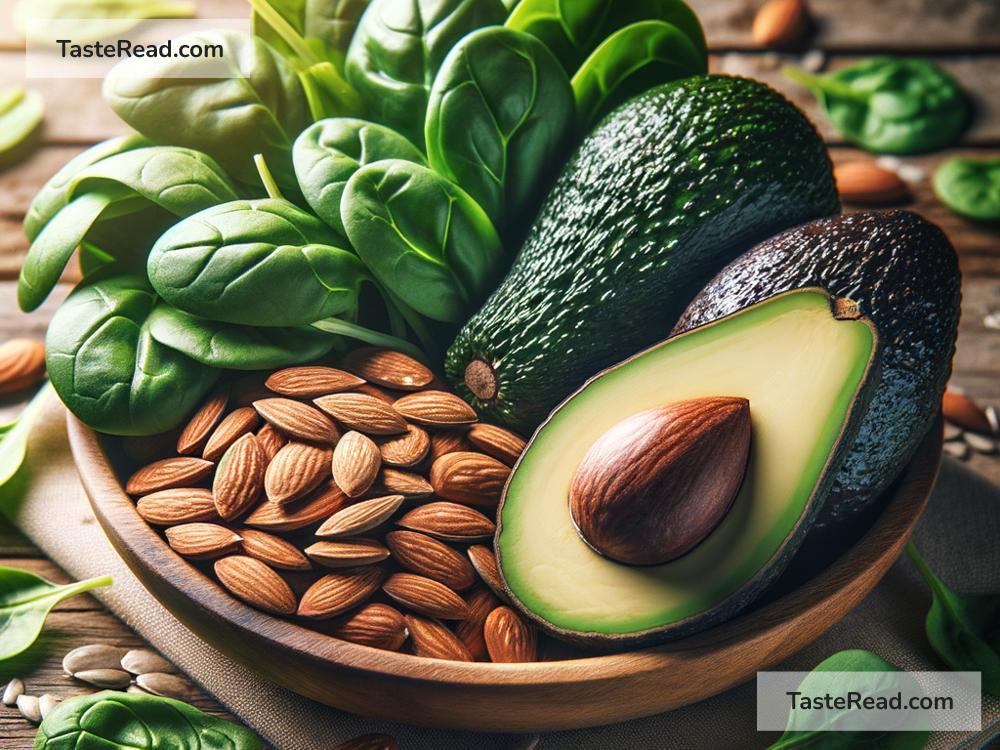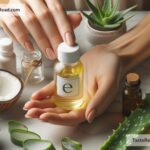The Role of Vitamin E in Antioxidant Protection: Why It Matters for Your Health
Most people have heard of vitamins and know they’re good for the body, but not everyone knows what they actually do. Vitamin E is a superstar among vitamins, especially when it comes to protecting your cells and keeping you healthy. In this article, we’ll explore why Vitamin E is so important, how it helps as an antioxidant, and how you can make sure you’re getting enough of it.
What Is Vitamin E?
Vitamin E is a fat-soluble vitamin, which means it dissolves in fat and can be stored in your body for later use. It is made up of several compounds, with the most active one being called alpha-tocopherol. Vitamin E is found naturally in certain foods and is also available as a supplement.
One of Vitamin E’s most important jobs is to act as an antioxidant. But what does that mean? Let’s dive into it.
What Are Antioxidants?
To understand why Vitamin E is such a big deal, we need to talk about antioxidants. Antioxidants are molecules that help protect your body from damage caused by unstable molecules called free radicals. Free radicals are formed naturally in the body during processes like digestion, exercise, and exposure to sunlight. However, too many free radicals can be harmful.
Think of free radicals as tiny troublemakers that can damage your cells, proteins, and even DNA. This damage is called oxidative stress, and it’s been linked to aging and chronic illnesses like heart disease, diabetes, and cancer. Antioxidants like Vitamin E swoop in to stop these free radicals in their tracks, keeping your cells safe and reducing oxidative stress.
How Does Vitamin E Protect Your Body?
Vitamin E plays a key role in shielding your cells from the harm caused by free radicals. One way it does this is by protecting your cell membranes. Cell membranes are like the protective walls around your cells, and they are made up of fats. Since Vitamin E dissolves in fat, it’s perfectly suited to anchor itself into the cell membrane and prevent free radicals from damaging it.
But that’s not all Vitamin E does. It also helps neutralize free radicals in other parts of your body. By donating electrons to free radicals, Vitamin E stabilizes them, making them less harmful.
Why Is Antioxidant Protection Important?
The protection provided by Vitamin E matters a lot because oxidative stress can lead to serious health problems over time. Here are just a few ways Vitamin E’s antioxidant powers can help you stay healthy:
-
Supports Heart Health
Vitamin E helps prevent the oxidation of LDL cholesterol (the “bad” cholesterol). Oxidized LDL is more likely to stick to the walls of blood vessels, leading to plaque buildup and increasing the risk of heart disease. By protecting cholesterol from oxidation, Vitamin E plays a role in maintaining a healthy heart. -
Protects Your Skin
Your skin is constantly exposed to the sun and environmental pollutants, which can create free radicals. Vitamin E helps protect skin cells from damage, reducing the risk of premature aging, wrinkles, and sunburn. -
Supports Immune Function
Vitamin E helps strengthen your immune system, making it easier for your body to fight off illnesses. It does this by protecting immune cells from oxidative stress so they can function properly. -
May Lower Risk of Certain Diseases
Research suggests that oxidative stress contributes to chronic diseases like Alzheimer’s, cancer, and diabetes. By reducing oxidative stress, Vitamin E may help lower the risk of these diseases, although more research is needed to understand its full impact.
How Can You Get Enough Vitamin E?
Getting enough Vitamin E is easier than you might think, especially if you eat a balanced diet. Many foods are rich in Vitamin E, including:
- Nuts and seeds, like almonds, sunflower seeds, and hazelnuts
- Vegetable oils, such as sunflower oil, wheat germ oil, and safflower oil
- Leafy green vegetables, like spinach and broccoli
- Fortified cereals
Vitamin E supplements are also available, but it’s usually best to get nutrients from food as they come with other beneficial vitamins, minerals, and fiber.
The Recommended Dietary Allowance (RDA) for Vitamin E is 15 milligrams per day for adults. Most people can get enough Vitamin E by including a few Vitamin E-rich foods in their daily diet.
Can You Have Too Much Vitamin E?
While Vitamin E is essential for health, it’s possible to have too much of it, especially if you take high-dose supplements. Too much Vitamin E can interfere with blood clotting and increase the risk of bleeding. It’s always a good idea to talk to your doctor before starting any new supplements.
Final Thoughts
Vitamin E is one of your body’s best defenses against oxidative stress and cell damage caused by free radicals. As an antioxidant, it helps protect your heart, skin, and immune system, and may even reduce your risk of chronic diseases. The good news is that you don’t have to work hard to get enough Vitamin E—plenty of delicious foods are rich in this essential nutrient.
So the next time you snack on almonds or drizzle olive oil on your salad, you can feel good knowing that you’re giving your body the antioxidant protection it needs to stay healthy and strong.


